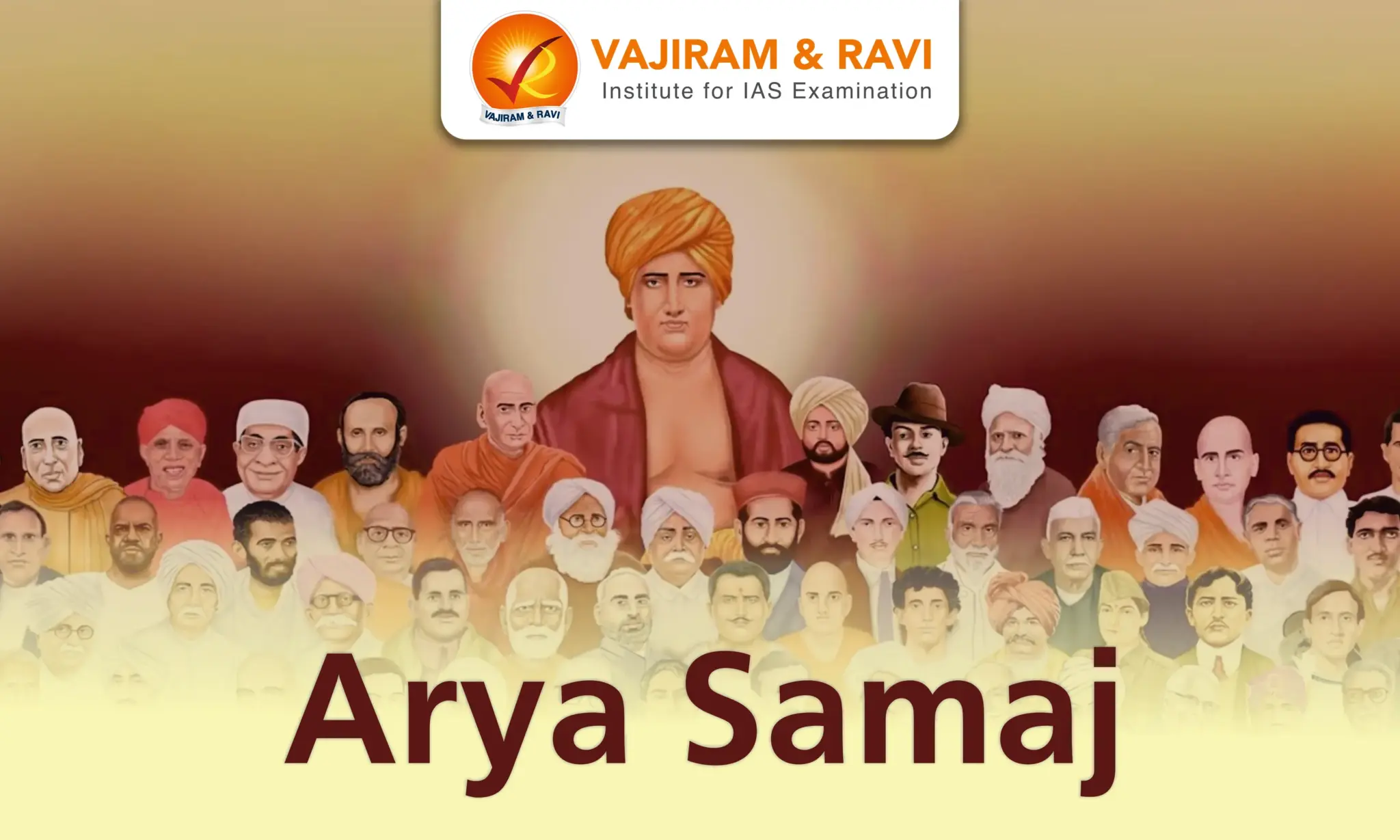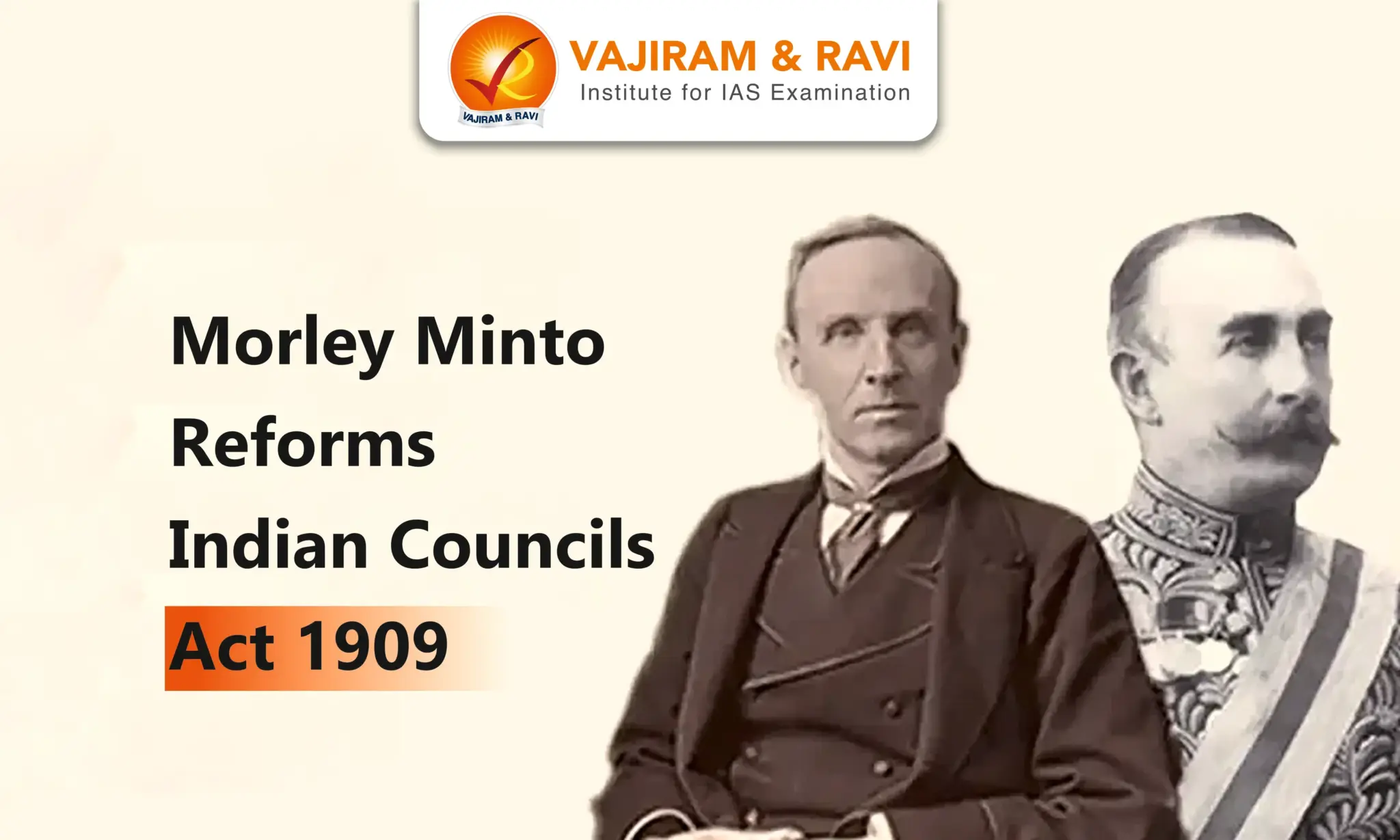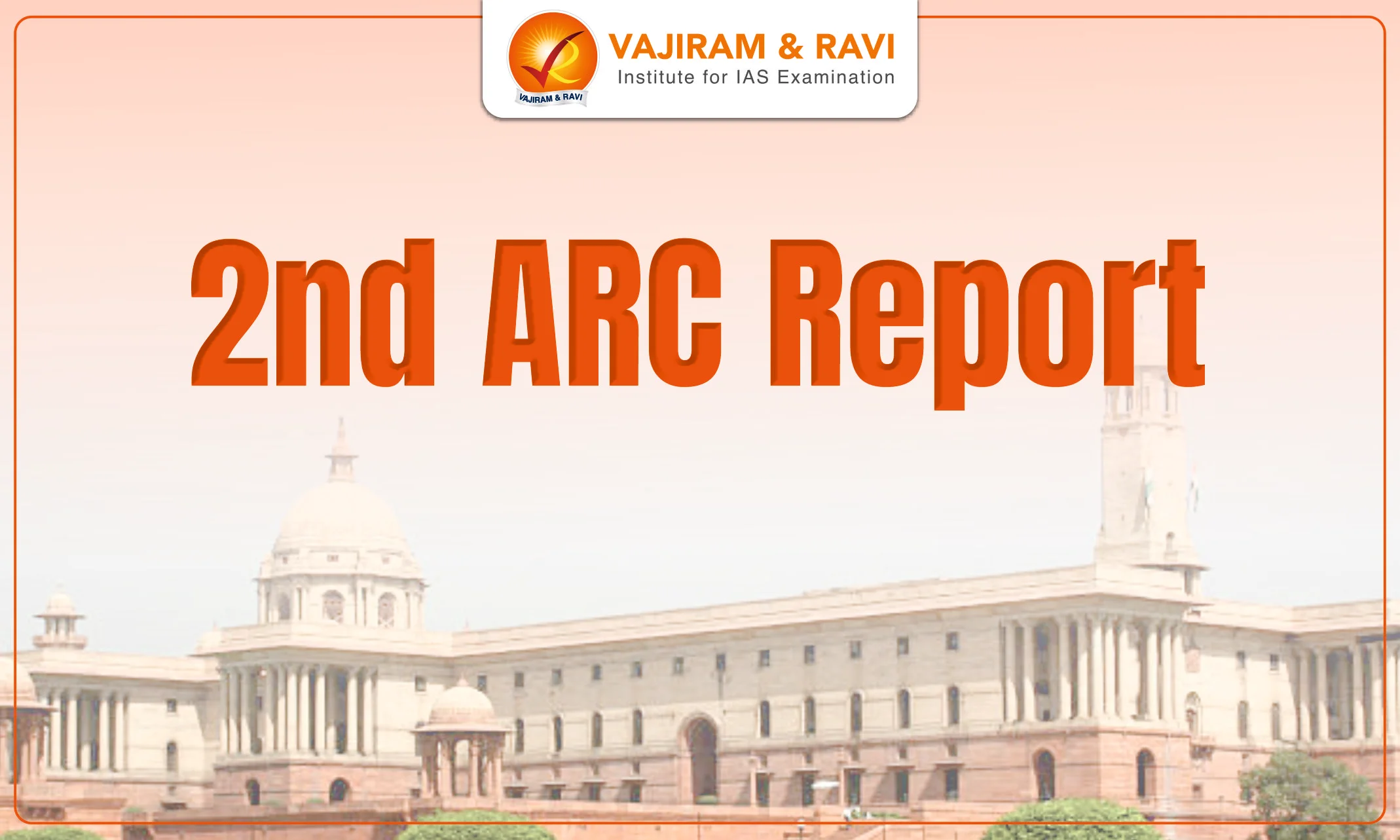Arya Samaj is a socio-religious reform movement that emerged in India during the 19th century. Founded by Swami Dayanand Saraswati in 1875, Arya Samaj aimed to revive the Vedic way of life and counter the influences of colonialism, social injustices, and religious orthodoxy.
The movement played a crucial role in shaping modern Indian society, particularly in the areas of education, religion, and social reform.
Arya Samaj
Arya Samaj was founded on April 10, 1875, in Bombay (now Mumbai) by Swami Dayanand Saraswati. He was deeply influenced by the Vedas and sought to promote the ancient texts as the ultimate source of knowledge and truth. He believed that the degeneration of Hindu society was due to the abandonment of Vedic principles and the rise of idolatry, superstitions, and rituals that had no basis in the Vedas.
- Swami Dayanand's reformist ideas were a reaction to the prevailing conditions in India, including British colonial rule and the rigid caste system that perpetuated social inequalities.
- His movement, Arya Samaj, aimed to return to the original teachings of the Vedas, which he believed were devoid of idol worship, caste discrimination, and religious intolerance.
- The establishment of Arya Samaj marked the beginning of a new era of religious and social reform in India. It attracted many followers who were inspired by Swami Dayanand's vision of a society based on Vedic values and principles.
Arya Samaj Mission
The mission of Arya Samaj can be summarised as the promotion of Vedic knowledge and the eradication of social evils. The movement's key objectives include:
- Revival of Vedic Dharma: Arya Samaj emphasised the Vedas as the ultimate source of truth, promoting a return to original Vedic practices that focused on monotheism, morality, and social justice.
- Social Reform: The movement aimed to eliminate social evils like caste discrimination, child marriage, and untouchability, advocating for equality and justice for all, regardless of caste, gender, or social status.
- Education: Arya Samaj prioritised education as a tool for empowerment, establishing many schools and colleges based on Vedic principles.
- Religious Reform: The movement rejected idolatry, rituals, and superstitions not rooted in the Vedas, promoting a rational and ethical approach to religion based on Vedic teachings.
- Promotion of Hindi: Arya Samaj significantly contributed to the promotion of Hindi as a national language and a medium of education and communication.
Arya Samaj Principles
Arya Samaj is guided by ten core principles, known as the 10 Principles of Arya Samaj. These principles form the foundation of the movement's philosophy and guide the actions of its followers, these are as follows:
- God is the Primary Cause: Arya Samaj believes in the existence of one God, who is the primary cause of all creation. This principle emphasises monotheism and rejects the worship of idols.
- God is existent, intelligent, and blissful: Arya Samaj defines God as formless, omniscient, just, merciful, and eternal. God is seen as the unchanging, beginningless, immortal entity that supports and masters all. He alone is worthy of worship.
- Vedas are the Source of Knowledge: Arya Samaj upholds the Vedas as the ultimate source of knowledge and truth. The movement advocates for the study and propagation of Vedic teachings.
- Promote Truth and Righteousness: Arya Samaj encourages its followers to follow truth and righteousness. This principle emphasises the importance of moral and ethical behaviour.
- All acts should be performed under Dharma: Arya Samaj teaches that every action should be guided by Dharma, meaning that one must carefully deliberate what is right and wrong before acting.
- Service to Humanity: Arya Samaj believes serving humanity is the highest form of worship. The movement encourages its followers to engage in social service and work for the welfare of society.
- Our conduct towards all should be guided by love, righteousness, and justice: It believes that principles of love, righteousness, and fairness should govern interactions with others. This ethical guideline promotes harmony and justice in society.
- Selflessness and Altruism: Arya Samaj encourages its followers to work for the welfare of others and to serve humanity selflessly. This principle emphasises the importance of altruism and social service.
- Education and Knowledge: Arya Samaj strongly emphasises education and knowledge as a means of empowering individuals and transforming society. The movement advocates for establishing schools and colleges to promote Vedic education.
- Societal Rules and Personal Liberty: Arya Samaj advocates for adherence to societal rules that promote the welfare of all. However, it also supports individual freedom concerning personal welfare, balancing social responsibility and personal liberty.
Arya Samaj Leaders
Arya Samaj has been shaped and influenced by several notable contributors who significantly promoted its ideals and objectives. Some of the most prominent figures in the movement include:
- Swami Virajanand Dandeesha: Born in 1778, he was the spiritual mentor of Swami Dayanand Saraswati. A blind scholar, he strongly promoted Vedic education and Sanskrit grammar, which profoundly influenced Dayanand's beliefs. Swami Virajanand's teachings inspired Dayanand to find Arya Samaj.
- Shri Shraddhanand: He was a key Arya Samaj leader influenced by Swami Dayanand. He founded Gurukul Kangri University for Vedic education and was active in the Indian independence movement.
- He was assassinated in 1926 for his efforts in promoting religious reform and Hindu-Muslim unity.
- Pandit Lekh Ram: H was known for promoting Vedic teachings and opposing religious orthodoxy. He gained fame through his debates, especially with the Ahmadiyya community. His defence of the Vedas made him a respected figure, and after his assassination in 1897 by an Ahmadiyya member, he became a martyr for Vedic reform.
Arya Samaj Contributions
Arya Samaj has significantly contributed to Indian society in various fields, including education, religion, and social reform. The movement's impact can be seen in the following areas:
Education Reforms
One of the most notable contributions of Arya Samaj is its emphasis on education. The movement established numerous schools, colleges, and universities across India, promoting Vedic education and the study of Sanskrit.
- The Dayanand Anglo Vedic (DAV) College Trust was established three years after Swami Dayanand Saraswati's death to promote his social and educational ideas. The first DAV High School opened in Lahore in 1886, with Lala Hans Raj as headmaster.
- Gurukul Kangri University was founded by Shri Shraddhanand in 1902 to offer an alternative to British education and promote Vedic studies, science, and philosophy.
- Arya Samaj emphasised education for women by creating schools for girls and advocating for women's education to empower them and enhance their social status.
Religious Reforms
Arya Samaj played a crucial role in promoting religious reform in India. The movement opposed idolatry, rituals, and superstitions that had no basis in the Vedas and advocated for a return to the Vedas' original teachings. It also criticised later Hindu scriptures such as Puranas.
- Arya Samaj's emphasis on monotheism, rationalism, and ethical behaviour resonated with many Indians who were disillusioned with traditional Hinduism's rigid orthodoxy.
- The movement also promoted the idea of Shuddhi (purification), which aimed to bring back to Hinduism those who had converted to other religions. The Shuddhi movement became a significant aspect of Arya Samaj's efforts to counter religious conversions and preserve Hindu identity.
- Go back to the Vedas: It signifies a call to return to the original scriptures of Hinduism, emphasizing the importance of Vedic teachings in spiritual and moral life.
Political & Social Reforms
Arya Samaj played a pivotal role in the Indian independence movement and in promoting social reforms. The movement's leaders were actively involved in the struggle for independence and used Arya Samaj's platform to mobilise support for the cause.
- National Leaders: Influential leaders like Lala Lajpat Rai and Swami Shraddhanand were inspired by Arya Samaj and actively participated in the Indian independence movement. They used Arya Samaj's platform to promote independence, social reforms, and support for marginalised groups.
- Swaraj: Swami Dayanand Saraswati believed Hindi should be the national language. In his book Satyarth Prakash, he supported religious nationalism and first used the term "Swaraj" in 1876, envisioning a free India from foreign domination.
Controversies Related to Arya Samaj
Arya Samaj has been both influential and controversial. While it has contributed significantly to social and religious reforms in India, it has also faced criticism and controversy over various issues.
- Opposition to Idol Worship: Traditionalist Hindus, who view idol worship and rituals as integral to Hinduism, have criticised Arya Samaj’s rejection of these practices. This stance has created friction with other Hindu sects.
- Shuddhi Movement: The Shuddhi (reconversion) movement, led by Arya Samaj, aimed at bringing converts back to Hinduism. It was controversial and led to tensions between Arya Samaj and other religious communities, particularly Muslims and Christians, who saw it as a form of religious aggression.
- Communal Tensions: The activities of Arya Samaj, particularly its efforts to protect cows and its criticism of Islamic practices, have sometimes led to communal tensions.
- For instance, the formation of the Cow Protection Association in 1882 led to riots between Hindus and Muslims, exacerbating religious divides.
Arya Samaj Split
In 1893, the Arya Samaj experienced a significant split primarily due to disagreements on two major issues: dietary practices and the approach to education.
- Dietary Practices: The Arya Samaj was divided over meat-eating versus vegetarianism.
- One faction, known as the "Mahatma" group, advocated strict vegetarianism, aligning with traditional Hindu dietary customs.
- The opposing faction, the "Cultured Party," was more liberal and supported the inclusion of meat in the diet.
- Educational Philosophy: Another point of contention was the type of education to be promoted.
- The Gurukul faction, led by Swami Shraddhanand, emphasised traditional Vedic education in Sanskrit and a return to ancient Hindu practices.
- In contrast, the College faction, associated with institutions like the Dayanand Anglo-Vedic (DAV) schools, supported modern education in English alongside Vedic teachings.
Arya Samaj UPSC PYQs
Question 1: Which among the following events happened earliest? (UPSC Prelims 2018)
(a) Swami Dayanand established Arya Samaj.
(b) Dinabandhu Mitra wrote Neel Darpan.
(c) Bankim Chandra Chattopadhyay wrote Anandmath.
(d) Satyendranath Tagore became the first Indian to succeed in the Indian Civil Services Examination.
Ans: (b)
Last updated on January, 2026
→ Check out the latest UPSC Syllabus 2026 here.
→ Join Vajiram & Ravi’s Interview Guidance Programme for expert help to crack your final UPSC stage.
→ UPSC Mains Result 2025 is now out.
→ UPSC Notification 2026 Postponed for CSE & IFS which was scheduled to be released on 14 January 2026.
→ UPSC Calendar 2026 has been released.
→ UPSC Prelims 2026 will be conducted on 24th May, 2026 & UPSC Mains 2026 will be conducted on 21st August 2026.
→ The UPSC Selection Process is of 3 stages-Prelims, Mains and Interview.
→ Prepare effectively with Vajiram & Ravi’s UPSC Prelims Test Series 2026 featuring full-length mock tests, detailed solutions, and performance analysis.
→ Enroll in Vajiram & Ravi’s UPSC Mains Test Series 2026 for structured answer writing practice, expert evaluation, and exam-oriented feedback.
→ Join Vajiram & Ravi’s Best UPSC Mentorship Program for personalized guidance, strategy planning, and one-to-one support from experienced mentors.
→ UPSC Result 2024 is released with latest UPSC Marksheet 2024. Check Now!
→ UPSC Toppers List 2024 is released now. Shakti Dubey is UPSC AIR 1 2024 Topper.
→ Also check Best UPSC Coaching in India
Arya Samaj FAQs
Q1. Who founded the Arya Samaj and why?+
Q2. Does Arya Samaj believe in God?+
Q3. What is the ideology of Arya Samaj?+
Q4. What are the 6 principles of Arya Samaj?+
Q5. Is Arya Samaj against caste system?+
Tags: arya samaj quest

















